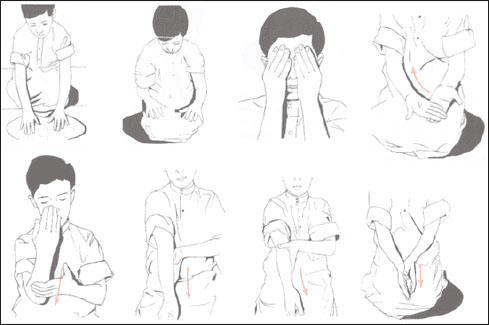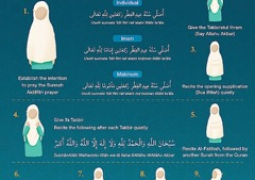
If the water is cold enough to physically harm the user
This is only allowed on the condition that he can find no one to heat it, or is unable to use the public bathrooms. ‘Amr ibn al-’Aas narrated that he was participating in an expedition. He had a wet dream during an extremely cold night, and was afraid that if he performed ghusl he would die. He prayed the morning prayer with his companions. He then went to the Messenger of Allah, upon whom be peace, to ask him about this. Muhammad said, “O ‘Amr, did you pray with your companions while you needed a post-nocturnal bath?” ‘Amr mentioned the verse, “Do not kill yourselves, Allah is merciful to you” to the Prophet. The Prophet just laughed and didn’t say anything. (Related by Ahmad, Abu Dawud, al-Hakim, ad-Daraqutni, Ibn Hibban and al-Bukhari in mu’allaq form.) This example illustrated the Prophet’s tacit approval.
When water is nearby, but one does not want to fetch it due to fear
If one fears for his life, family, wealth, (for example, if an enemy is nearby--beast or human--or one is a prisoner, and so on), one may perform tayammum. This is also allowed if there is water but one lacks the proper means to get it, or if one fears some accusation against him if he gets it.
If one is saving his water for later use
This could be for a hound, for dough, cooking or to remove an impurity that is not pardonable. Says Imam Ahmad, “Many of the companions performed tayammum to save their water for drinking.” ‘Ali said that a man who is travelling and becomes unclean because of sex or a wet dream can perform tayammum if he fears he will go thirsty: “He should perform tayammum and not ghusl.” (Related by ad-Daraqutni.) Says Ibn Taimiyyah, “If a person needs to relieve himself but has only a small amount of water, it is best that he pray with tayammum and relieve himself, rather than keep his ablution and pray before relieving himself.”
One can get water, but fears that the prayer will be over by the time he gets it
He can perform tayammum and pray, and does not need to repeat his prayer (after he gets water).
The soil used for Tayammum
It must be pure soil: this can be sand, stone, gypsum, and so on. Says Allah, “Perform tyammum with pure soil,” and all scholars of Arabic agree that “soil” is whatever covers the earth, dirt or otherwise.
How to perform Tayammum
First, one must have the intention (see the section on ablution). Then, he mentions Allah’s name, strikes the soil with his hands, wipes his face and his hands up to the wrist. Nothing is more authentic and clear than what ‘Ammar related. He said, “We became sexually impure and had no water, so we rolled in the dirt and prayed. This was mentioned to the Prophet and he said, ‘This would have been enough for you,’ and he struck the earth with his hands, blew in them and then wiped his face and hands with them.” (Related by al-Bukhari and Muslim). In another text he states, “It would have been enough for you to strike the ground with your hands, blow into them, then wipe your face and hands up to the elbows.” (Related by ad-Daraqutni.)
This hadith shows that one strike of the earth is sufficient, and one only wipes the arms to the wrists. It is from the Sunnah that one who makes tayammum with dirt should blow into his hands first and not make his face dusty or dirty.
What tayammum makes permissible
After doing so, he is pure and may do any of the acts requiring prior purification, such as praying and touching the Qur’an. He does not have to perform it during the time of prayer, and he may pray as many prayers as he wishes (unless he nullifies it), exactly as he can after performing the regular ablution. Abu Zharr reported that the Prophet said, “The soil is a purifier for a Muslim, even if he does not find water for twenty years. Then if he touches water, that is, to make ablution, and so on, it would be good.” This is related by Ahmad and at-Tirmizhi, who said it is sahih.
What nullifies tayammum
In addition to the presence of water, everything that nullifies the ablution nullifies tayammum. If a person prays after performing tayammum and then finds water, he does not need to repeat his prayer even if there is time left to do so. Abu Sa’eed al-Khudri said, “Two men went out on a journey. The time of prayer came and, as they had no water, they performed tayammum. Then they found some water during the time of the same prayer. One of them repeated his prayer with ablution and the other did not. When they saw the Messenger of Allah, they asked him about the proper procedure in such a case. He said to the one who did not repeat his prayer, ‘You have acted according to the Sunnah and your prayer is sufficient for you.’ He said to the other, ‘You will get a double reward.”’ (Related by Abu Dawud and an-Nasa’i.) If one comes across water before he prays or finishes his prayer with tayammum, his prayer becomes null and void, for he must make ablution with water. If a person is not clean because of sex or a wet dream, or a woman is menstruating, and they pray after performing tayammum, they need not repeat their prayer after finding water, but they must perform ghusl with water when they can. ‘Umar said, “The Prophet led the people in prayer, and afterwards saw a man who had not prayed. He said, ‘Why didn’t you pray with us?’ The man replied, ‘I was sexually unclean and there was no water.’ He told him, ‘Use the soil, and it will be enough.’ ‘Imran then mentioned that they later found water. The Prophet, upon whom be peace, brought a bowl of water for the man and told him to perform ghusl. (Related by al-Bukhari.)
To be Continued




